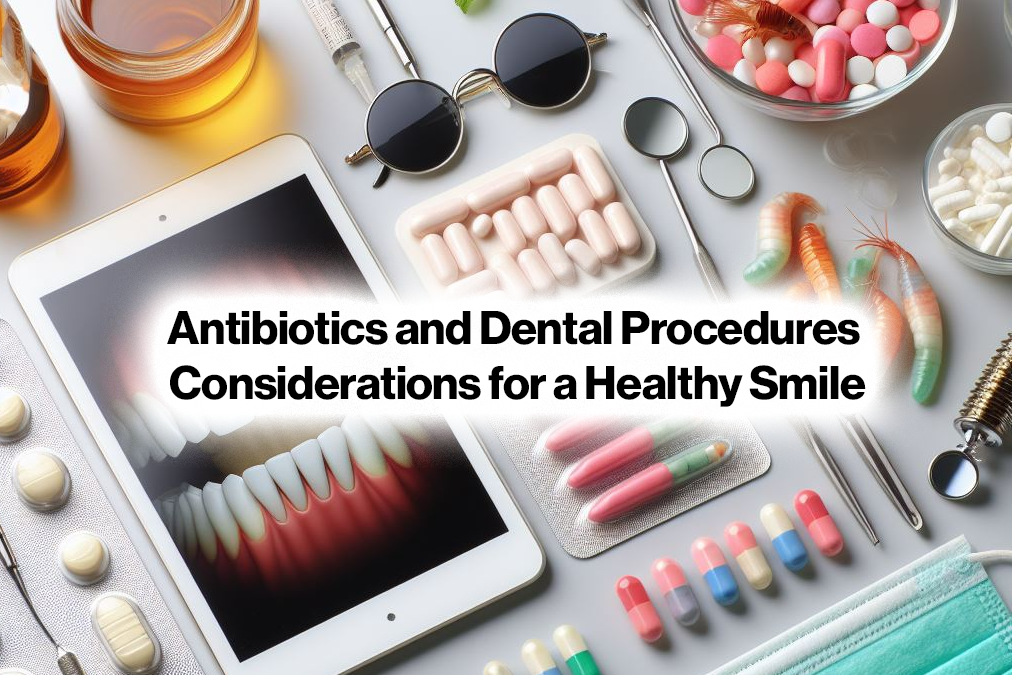In the realm of dental health, it’s crucial to consider all aspects that contribute to maintaining a healthy smile. One significant consideration that often arises is the use of antibiotics in conjunction with dental procedures. The seamless amalgamation of antibiotics and dental treatments is pivotal not only for the successful completion of these procedures but also for safeguarding overall health. In this comprehensive guide, we delve into the intricate nuances of antibiotics’ role in dental procedures, shedding light on their importance, types, administration, and the essential factors that both patients and dental practitioners should take into account.
Understanding the Role of Antibiotics in Dental Procedures
Antibiotics play a pivotal role in dental procedures by preventing, managing, and treating infections that can arise due to various treatments. Dental treatments such as extractions, root canals, and implant placements can create pathways for bacteria to enter the bloodstream and potentially cause infections elsewhere in the body. Antibiotics act as a safeguard against such complications, aiding in the prevention of post-procedural infections.
Types of Antibiotics Commonly Used in Dental Procedures
- Penicillins: This class of antibiotics, including Amoxicillin, is widely used in dental procedures due to their efficacy against a broad range of oral bacteria.
- Clindamycin: In cases of patients allergic to penicillins, clindamycin is a valuable alternative that offers effective coverage against oral infections.
- Azithromycin: Often prescribed as a single dose before certain dental procedures, azithromycin provides extended coverage and is particularly useful for patients who may struggle with adherence to multi-day antibiotic regimens.
Proper Administration and Timing
For antibiotics to effectively serve their purpose, proper administration and timing are imperative. Dentists carefully assess each patient’s medical history, allergies, and specific dental procedure to determine the appropriate antibiotic regimen. Generally, antibiotics are prescribed before the dental procedure, allowing sufficient time for the medication to take effect and prevent potential infections.
Factors to Consider for Patients
- Medical History: Patients should inform their dental practitioners of their complete medical history, including allergies, existing medications, and any underlying health conditions. This information is crucial for determining the right antibiotic and preventing adverse reactions.
- Adherence: Strict adherence to the prescribed antibiotic regimen is paramount. Patients must follow their dentist’s instructions meticulously to ensure the antibiotics can effectively combat potential infections.
- Allergies: Any known allergies should be communicated to the dentist promptly. This information guides the dentist in selecting an antibiotic that is safe and suitable for the patient.
Factors to Consider for Dental Practitioners
- Infection Risk Assessment: Dentists meticulously assess the infection risk associated with each procedure. This assessment informs the decision to prescribe antibiotics, ensuring they are reserved for procedures with a higher potential for post-operative infections.
- Prophylactic Use: Prophylactic use of antibiotics involves administering them to patients at risk of infection before a procedure. Dental practitioners carefully select cases where this is warranted, preventing unnecessary antibiotic use.
- Follow-Up: After prescribing antibiotics, dental practitioners should schedule follow-up appointments to monitor the patient’s progress and ensure the prescribed medication is effectively preventing infections.
In conclusion, the symbiotic relationship between antibiotics and dental procedures is a vital component of modern dental care. By comprehending the role of antibiotics, understanding the types commonly used, and adhering to proper administration guidelines, both patients and dental practitioners contribute to the prevention of post-procedural infections and the overall enhancement of oral health. Remember, maintaining a healthy smile requires meticulous attention to all aspects of dental care, and the strategic use of antibiotics stands as an essential pillar in this pursuit.

Leave a Reply